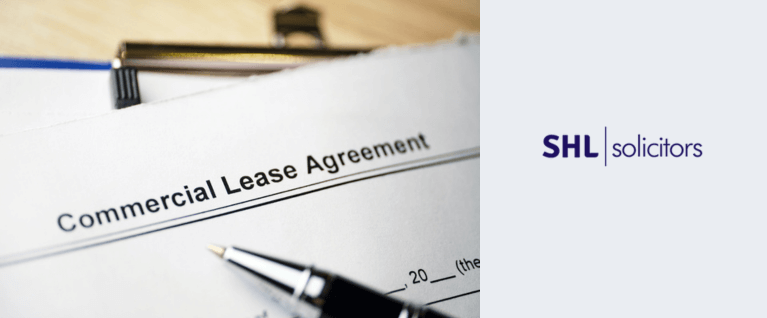Always stuck to long-term contracts for your office spaces? That’s you, and most commercial landlords.
There’s no denying, it’s an approach that can offer fantastic stability and security… but only if you can get tenants to sign on the dotted line in the first place.
In a post-pandemic world, short-term leasing is becoming the ‘new normal’ for UK offices. And by adapting to this alternative approach and drafting up a short-term lease for your commercial properties, as a landlord, you could have a lot to gain.
Here we take a closer look at why.
Short-term office leases – a sign of the times
The pandemic has brought about big changes to the traditional office.
Remote working may have, initially, been a necessity due to lockdown – but now, it’s the norm. These days, people rarely head into the office for the full five-day week. Add in a tough financial crisis, and it’s little wonder that companies have started to re-evaluate their requirements.
Since the shift to ‘working from home’, office vacancies have soared to a decade-high of 7.6%.
According to recent data, the length of UK office leases has also fallen to the lowest level on record – dropping from around 4 years 6 months in 2019 (pre-pandemic) to 2 years 10 months in 2023.
Interestingly, letting contracts of 12 months or less now account for almost half of all office leases. Whilst the number of long-term leases (lasting for 10+ years) has decreased by 70% since 2019 – with these contracts now making up just 1.46% of the market.

So what do these figures mean for you as a landlord?
Given the uncertain economic outlook and new office working patterns, it seems, companies are now somewhat reluctant to commit to a long-term lease. And to continue to secure a rental income for your commercial offices, you may need to change with the times.
Long-term commercial leasing is no longer the standard. You can’t simply sign a contract, and say ‘See you in 10 years!’. To keep modern companies in your physical workspace, you may now need to ‘work a little harder’ and start to embrace short-term tenancy agreements.
5 benefits of a short-term commercial lease
Short-term leases have a notoriously bad reputation in commercial real estate – with most people believing they lead to a high turnover of tenants and financial losses.
But the reality is, they aren’t always a bad idea. In fact, in this post-covid era, they can actually offer a wide range of benefits for you as the landlord.
1. Reduced vacancies
At present, the demand for short-term office leases is at an all-time high.
A short-term contract may not be your preference – but surely it’s better than having no contract at all? Beggars can’t always be choosers. If your property is standing empty, offering a short-term lease and filling up the space with tenants for 12 months (or even less) is the shrewd decision.
Think of it as a stopgap – a way to limit your losses until you can find a better option.
2. An easy way out
These are tough economic times for everyone – landlords included.
By opting for a short-term commercial lease, you give yourself a bit of a safety net.
At the end of each 12 month-contract, you’ll be given an opportunity to take stock of the market and assess your financial situation. Should you need to, you can then sell the property – without having to give any notice or wait for a long tenancy to come to an end.
3. Better profits
Long-term leasing may provide stability – but it also locks in and restricts any price changes.
By contrast, short-term leasing can be a very lucrative business.
Research has shown that landlords can earn up to 43% more by embracing short-term contracts. And as the rent amount is only fixed for the term of the lease, it’s much easier to adapt to market rises year-on-year – and ensure you continue to get the ‘going rate’ for the office space provided.
4. Fewer incentives required
To secure a long-term commercial lease – particularly at the moment – you may also need to offer incentives, such as a capital contribution towards fit-out expenses and long rent-free periods.
These ‘incentives’ will undoubtedly have a negative effect on your bottom line.
But with a short-term office lease, they’re unnecessary. Such spending can then no longer be justified, as there’s not enough time to amortise the cost over the term of the lease – and tenants understand this. At most, you may need to pay for a fresh lick of paint or a new carpet.
5. Flexibility
Due to the short-term nature of the lease, the terms of the contract can be updated much more regularly. Whether you want to change your policy on pets or add to your move-out inspection requirements, you’ll only ever have 1-2 years to wait before you can make these alterations.
Plus, if the agreement didn’t go to plan, you can also change your tenants with minimal fuss.

Considering a switch to short-term leasing?
Short-term office leases are becoming increasingly common. And as the sector shows no signs of giving up its new ‘work from home’ lifestyle – and the UK’s economic outlook remains very uncertain – this trend is unlikely to change any time soon.
To ensure your property isn’t left vacant, now may be the time to adapt.
Not sure where to start? Here at St Helens Law, as industry-leading specialists in this area, our commercial property solicitors can assist in drafting the ideal short-term lease for your UK office spaces.
From establishing the ideal contract length for your properties to pinpointing the main terms and conditions of your perfect agreement, we can guide you step-by-step through the full process – offering our advice and expertise and delivering an exceptional service for a fixed fee.
An initial consultation with our commercial property team is available free of charge.
So where’s the harm in getting in touch to find out more? You can either fill out our online enquiry form and we’ll respond as soon as possible with some suggested times and dates. Or if you have any questions about commercial lease drafting, please feel free to give us a call on 01744 385171.
We’re always on hand and happy to help.


